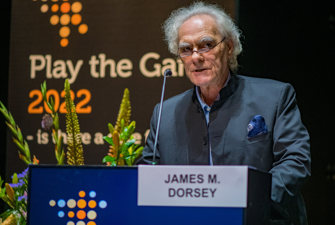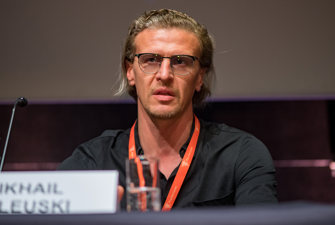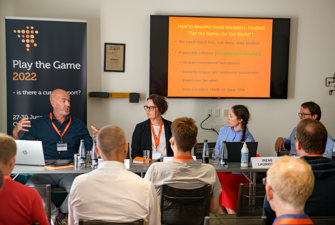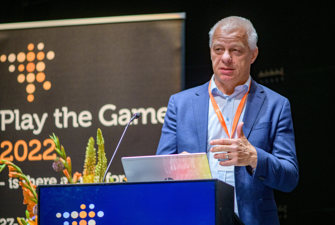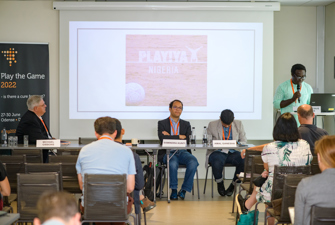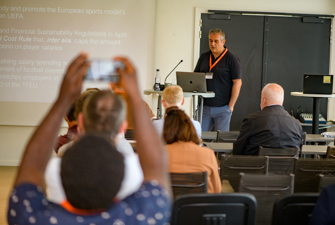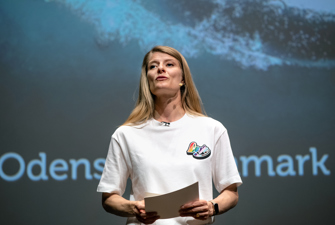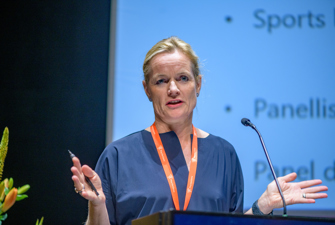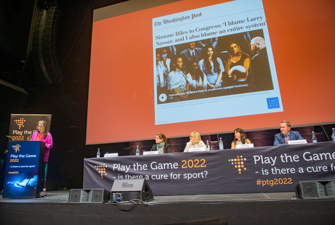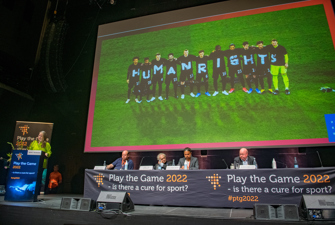External oversight key to athlete trust in abuse and violence investigations
Research presented at Play the Game 2022 shows that athletes have no trust in sport’s existing reporting mechanisms and that the outcome of their complaint will never be in their favour.
External oversight is key to restoring athlete trust that allegations of abuse and violence in sport will be dealt with and the perpetrators punished, heard delegates at Play The Game 2022 who took part in a session about the endemic violence in sport.
“Too many perpetrators in too many countries are being protected in too many sports,” said Whitney Bragagnolo, a former national level athlete and PhD researcher in sports ethics at Charles University.
Bragagnolo outlined her research involving 513 current athletes, 19 per cent of which had experienced ‘sextortion’ - the abuse of power to obtain a sexual advantage.
Less than one fifth of them reported a situation through a sport’s existing reporting mechanism. 60 per cent said they had no trust any action would be taken; 59 per cent said they had no faith in any punishment being administered; and 52 per cent said they felt reporting abuse would impact their career.
A culture of bystanding in Indian sport
Murali Krishnan outlined 45 complaints to the Sports Authority of India between 2010 and 2020. The complaints involved 29 coaches. Five were given a pay reduction, two had their contracts terminated, and one was suspended.
He pointed out that cases of sexual coercion involving cycling coach RK Sharma only came to light when Deborah Herold supported a survivor by revealing she was dropped from the national team because Sharma suspected she was having a relationship with another female cyclist.
“There is a culture of bystanding in sport”, said Krishnan. “People won’t take action when they know abuse is going on.”
He said that many Indian women perceive that the outcome of their complaint will never be in their favour. Unofficial figures suggesting 200 perpetrators and 10,000 victims across 53 sports in India suggested they might be right, Krishnan outlined.
Safeguarding can also be a problem for established sports federations as explained by Claudia Villa Hughes and Urvasi Naidoo of the Commonwealth Games Federation when they outlined the challenges in developing such a policy from scratch for the Commonwealth Games in Birmingham, which begins on 28 July 2022.
Sport needs an external review mechanism
“Without an external review or audit mechanism, there is no way of tracking progress and instituting real reform,” said Hilary Findlay of Brock University. “External review of dismissed complaints would help spot issues and patterns.”
She also said that sport needed to be trauma informed and interview survivors rather than interrogating them.
What can happen when sport is left to implement its own polices without an external oversight mechanism was illustrated by Payoshni Mitra, who highlighted the case of Annet Negesa. The Ugandan 800m was one of four women who received unsought surgery, without informed consent, through removal of undescended testicles to lower testosterone levels.
The IAAF’s Hyperandrogenism Regulations, which were in place at the time, required female athletes to reduce high testosterone levels in order to continue compete. The athletes were told by the IAAF that surgical procedures would allow them to competing. All four are now uncompetitive and suffer health issues. Over 30 cases were dealt with under the IAAF’s Hyperandrogenism Regulations between 2011 and July 2015, it emerged during questions.
“What more can we do?” asked Mitra. “We went to the Court of Arbitration for Sport, we went to the Swiss Federal Tribunal and the ECHR.”
Rob Koehler of Global Athlete highlighted that, in this case, journalism is another form of external review that can be used to highlight athlete abuse by sport.
Journalists also experience the endemic violence in sport
But journalists also experience abuse and may need protection when covering sports issues.
‘Stick to what you do best get back to the kitchen, cos u talk s**t on TV’ read one tweet analysed by Lauren Burch of Loughborough University, London, who has investigated the online abuse directed at journalist and former football player Karen Carney.
Karen Carney was tagged on Twitter by Leeds United, after suggesting that the Covid-19 shutdown may have helped the English football club win promotion to the FA Premier League.
Burch found that there were 590 actors who directed some form of abuse against Carney, in over 15,000 tweets involving over 300,000 people.
“The algorithm obviously needs to do a better job,” she said. “But we also need human monitoring and the media to call it out as abuse, not trolling.”
